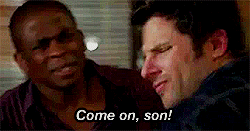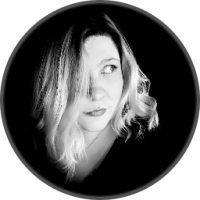I have tried so very, very hard not to get into this. The whole FSoG thing just makes me tired and has since it first came out, so I mostly ignore it.
But of course, if something irks me, eventually I’ll find my way to my blog about it.
With the movie coming out and everyone watching/hate-watching it, every single day there are a dozen new opinion pieces on it. (And this post, btw, is not an opinion piece on the books, movie, etc, but on one segment of the conversation about the subject.) Besides the usual batch of “this story not only depicts wrong BDSM practices and abuse, it normalizes/romanticizes it, and that’s a bad thing” ones, there’s been a sharp push in the other direction.
“It’s a touching love story and I’m sick of people telling me I can’t enjoy it.”
“I loved the book, it’s just a LOVE STORY, and all these people are screaming about abuse, which it’s not.”
“I can enjoy whatever I want and I’m tired of people making me feel bad about it. I’m taking a stand.”
I just…
I…

Okay, I have one question.
Is this really the hill you want to die on here?
You have survivors of rape and abuse with the courage to come forward and say, “Look, here is a thing that is problematic in that it resembles what I went through, and maybe you should think about what you’re condoning when you call it a ‘touching love story’. That’s contributing to a dangerous narrative.”
And…you want them to be quiet about this? You think they should stop talking about this? Because you…don’t like them making you feel bad?
Again…is this really the hill you want to die on here, people? The one you’re on while defending something a marginalized group is pointing out has problematic content that hurts them?
The one opposing domestic violence survivors???

Here’s the thing: no one is taking the book away from you. No one is saying you can’t have fantasies. No one is saying you can’t love it. But you loving a thing does not erase the potential harm it’s doing to other people, and your vocal support of it with no caveats about the problematic nature of it hurts others. Your fantasies are also someone else’s reality and they’re telling you, pretty clearly, that it’s painful for them to hear you talk about how this horrible thing they went through just sounds AWESOME.
Look, I like lots of stuff with problematic* elements, especially stuff I loved in my childhood.
Take Crocodile Dundee. I saw that in the theatre as a kid. I own the DVD now. Watching it as an adult…hmm, wow, there is some frighteningly awful transphobic content in this movie. Huh.
Do I still like the movie? Yes. Being a cis woman who has not experienced transphobia, I am in a privileged position of being able to separate the bits that I recognize are contributing to a harmful narrative of trans women from the rest of the film that I like. If a trans woman raises the point about how it dehumanizes her and helps support a culture of hate that threatens her life, well, I ain’t gonna argue with that. She’s right. I can still like a lot of the movie while recognizing the harm it does to other people. And I’m not going to defend transphobia in the film simply because I like the rest of it. In fact, if you tell me I’m a bad person for liking the film because of problematic content in it, I’m not going to get butthurt about it but seriously contemplate your position and my privilege.
Defending Crocodile Dundee is not a hill I’m prepared to die on.

Now, back to FSoG, I do not think one movie or book is likely going to directly hurt someone (unless you throw it at them).
I think women are pretty savvy and I don’t worry about them reading FSoG and suddenly falling into an abusive relationship. I give women–even impressionable teen girls–a hell of a lot more credit than that. I don’t necessarily think merely watching one sexual assault against a character in an 80s film is going to directly lead to everyone assaulting women, or that every man ever who watches a single rom-com is going to believe harassing a women will make her fall in love with him.
But these stories do not exist in a vacuum.
When the overriding culture we live in idealizes, normalizes, and romanticizes violence against all women–when people are arguing about what does and doesn’t constitute consent–THAT is what is dangerous. And the culture is made up of all the tiny little seemingly harmless things we say and do on a daily basis. When a domestic violence victim says “This is the most horrible thing that ever happened to me” and everyone around her shouts “OH IT’S SO ROMANTIC”…you see how that’s a problem? And when they tell her to shut up because they like this “touching love story” and don’t want to hear her criticisms? You think that’s perhaps not the most empathetic approach? Maybe? A little?

Believe me, if you’re tired of hearing about how this story you like is harmful to people, imagine how tired DV survivors are of hearing about how romantic it is.
So see this post by Jenny Trout, as it articulates everything I’d want to say but get too ragey to get into, and “I Dated Christian Grey” at The Mary Sue, and instead of getting defensive/feeling attacked, try to listen to what survivors are saying.
And, again, question whether or not silencing them for your comfort is really a battle worth fighting.
/Skyla out. This’ll be the last I say on the subject–I have shit to do.
* My definition of problematic is when something is played for laughs or idealized without any awareness of its harm, or normalizes something harmful. Showing a man reacting offensively to a trans woman is not necessarily problematic if it’s depicted as a bad thing. Showing a man reacting offensively to a trans woman and playing it for laughs absolutely is. Likewise, depicting an abusive relationship is not necessarily problematic if it’s depicted as bad thing. Depicting an abusive relationship as romantic/ideal is. In both cases, though, even depicting bad things as bad can mean contributing to a harmful narrative and should be done with care. These kinds of conversations are important to have.

 Writer of urban fantasy, thrillers/mysteries, and horror.
Writer of urban fantasy, thrillers/mysteries, and horror.